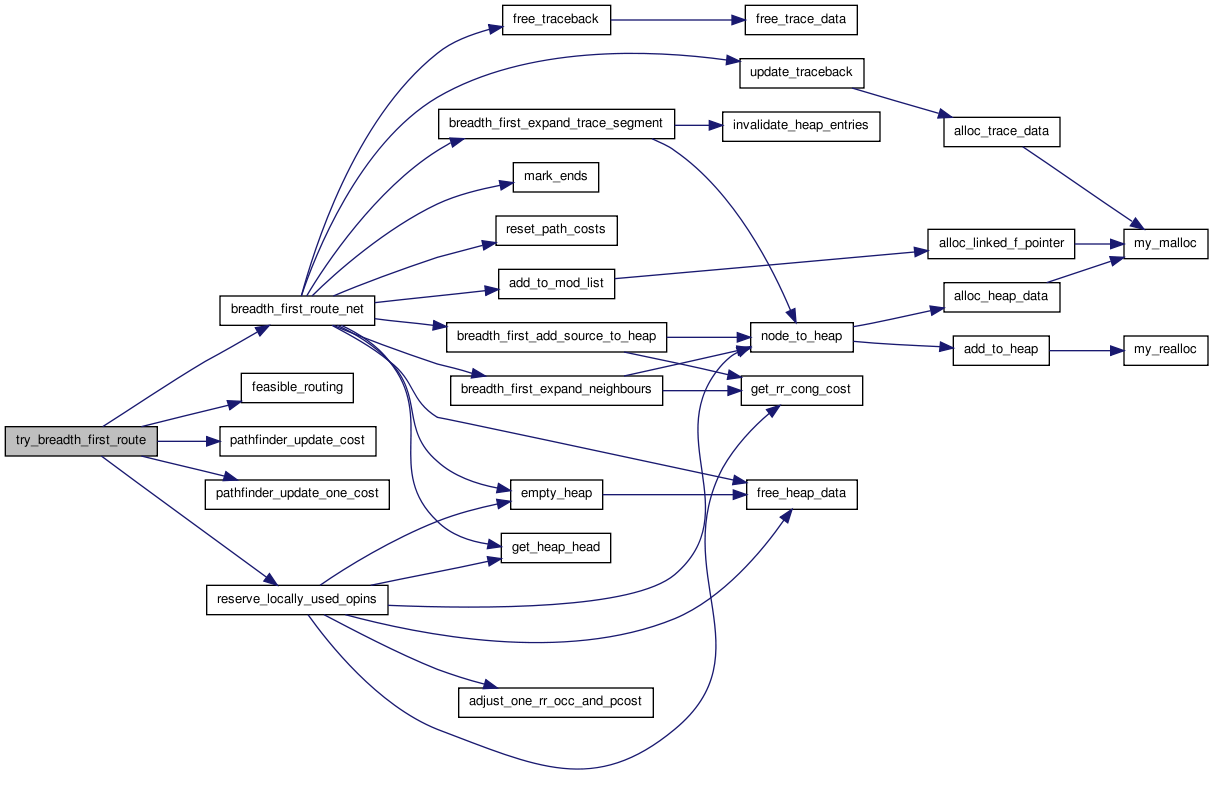vpr/SRC/route/route_breadth_first.h File Reference
 This graph shows which files directly or indirectly include this file:
This graph shows which files directly or indirectly include this file:Go to the source code of this file.
Functions | |
| boolean | try_breadth_first_route (struct s_router_opts router_opts, t_ivec **clb_opins_used_locally, int width_fac) |
Function Documentation
| boolean try_breadth_first_route | ( | struct s_router_opts | router_opts, |
| t_ivec ** | clb_opins_used_locally, | ||
| int | width_fac | ||
| ) |
Iterated maze router ala Pathfinder Negotiated Congestion algorithm, (FPGA 95 p. 111). Returns TRUE if it can route this FPGA, FALSE if it can't.
Definition at line 35 of file route_breadth_first.c.
{
float pres_fac;
boolean success, is_routable, rip_up_local_opins;
int itry, inet;
/* Usually the first iteration uses a very small (or 0) pres_fac to find *
* the shortest path and get a congestion map. For fast compiles, I set *
* pres_fac high even for the first iteration. */
pres_fac = router_opts.first_iter_pres_fac;
for(itry = 1; itry <= router_opts.max_router_iterations; itry++)
{
for(inet = 0; inet < num_nets; inet++)
{
if(clb_net[inet].is_global == FALSE)
{ /* Skip global nets. */
pathfinder_update_one_cost(trace_head[inet], -1,
pres_fac);
is_routable =
breadth_first_route_net(inet,
router_opts.
bend_cost);
/* Impossible to route? (disconnected rr_graph) */
if(!is_routable)
{
printf("Routing failed.\n");
return (FALSE);
}
pathfinder_update_one_cost(trace_head[inet], 1,
pres_fac);
}
}
/* Make sure any CLB OPINs used up by subblocks being hooked directly *
* to them are reserved for that purpose. */
if(itry == 1)
rip_up_local_opins = FALSE;
else
rip_up_local_opins = TRUE;
reserve_locally_used_opins(pres_fac, rip_up_local_opins,
clb_opins_used_locally);
success = feasible_routing();
if(success)
{
printf
("Successfully routed after %d routing iterations.\n",
itry);
return (TRUE);
}
if(itry == 1)
pres_fac = router_opts.initial_pres_fac;
else
pres_fac *= router_opts.pres_fac_mult;
pres_fac = min (pres_fac, HUGE_FLOAT / 1e5);
pathfinder_update_cost(pres_fac, router_opts.acc_fac);
}
printf("Routing failed.\n");
return (FALSE);
}
 Here is the call graph for this function:
Here is the call graph for this function: Here is the caller graph for this function:
Here is the caller graph for this function:


